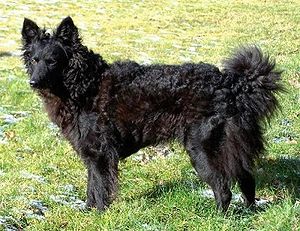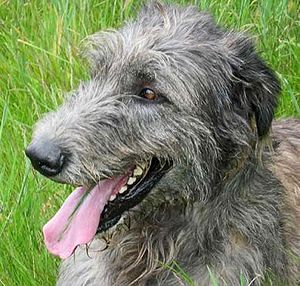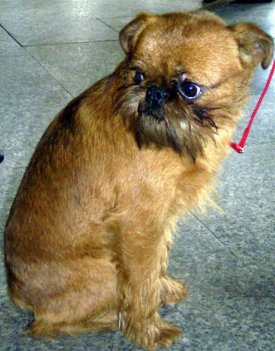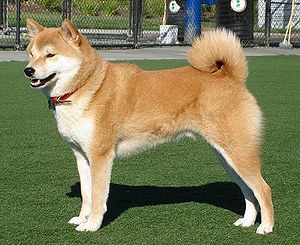 |
| Vital Statistics: |
| Place of Origin: Hungary |
| Group: Herding dog |
| Height: 14-19 in. |
| Weight: 18-29 lbs. |
| Life span: 13-14 yrs. |
| Trainability: high |
| Good with children: yes with early socialization |
| Good with other pets: yes with early socialization |
What is the origin of the Mudi?
Native to Hungary, the Mudi appeared spontaneously about 100 years ago. Thanks to the enthusiastic commitment of some breeders the Mudi was saved from extinction.
What does the Mudi look like?
The Mudi is 14-19 inches tall and weighs 18-29 lbs. The wedge-shaped head ends in a pointed nose. Eyes are oval and dark brown. Ears are erect and upside down v-shaped. The tail is short. The coat is dense, wavy to curly forming tufts. Colors are black, white, brindle, red, brown or gray. Regular combing will keep the coat in good condition.
What is the temperament of the Mudi?
This very intelligent breed learns quickly and eagerly. Early socialization is important as they can be wary of strangers. Courageous and fearless in the hunt, Mudis are not aggressive at home and are gentle with the family. They accept children and are good with other dogs. However they may see small animals as prey unless raised with them. Mudis need vigorous exercise and should have daily long walks and a secure area to run in.
What is the Mudi used for?
In Hungary the Mudi is used to herd, as a guard dog, hunter of vermin and other wild animals. Mudis are defenders of home and family. They also compete in several dog sports.
Possible Health Issues
Epilepsy, eye disorders, allergies, hip dysplasia, patellar luxation, umbilical hernia.
- Australian Cattle Dog
- Australian Kelpie
- Australian Shepherd
- Bearded Collie
- Beauceron
- Belgian Sheepdog – Groenendael
- Belgian Tervuren
- Bergamasco
- Berger Picard
- Blue Lacy
- Border Collie
- Bouvier des Flandres
- Briard
- Cardigan Welsh Corgi
- Catahoula Leopard Dog
- Collie
- English Shepherd
- Entlebucher
- Finnish Lapphund
- German Shepherd
- Hovawart
- Icelandic Sheepdog
- Laika
- Lancashire Heeler
- Miniature American Shepherd
- Old English Sheepdog
- Pembroke Welsh Corgi
- Polish Lowland Sheepdog
- Puli
- Pumi
- Pyrenean Shepherd
- Shetland Sheepdog
- Standard Schnauzer
- Swedish Vallhund



